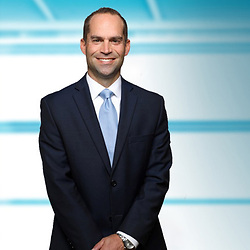Recent U.S. Supreme Cases Granting Religious Exemptions to Federal Employment Discrimination and Mandatory Contraception Coverage
On July 8, 2020, the United States Supreme Court handed down two decisions impacting religious employers: Our Lady of Guadalupe School v. Morrissey-Berru and Little Sisters of the Poor Saints Peter and Paul Home v. Pennsylvania et al. In Our Lady of Guadalupe School, the Court held teachers at religious schools whose duties involved religious aspects are covered by the so-called “ministerial exception” grounded in the Religion Clauses of the First Amendment and identified in the 2012 landmark decision Hosanna Tabor Evangelical Lutheran Church and School v. EEOC. In Hosanna Tabor, the Court held this ministerial exception applied to federal employment discrimination laws, such as the Americans with Disabilities Act (ADA) and Age Discrimination in Employment Act (ADEA), for religious organizations with respect to employees who perform “religious functions” – such as teaching the faith, preaching, representing or speaking for the religious organization, or otherwise holding or exercising ecclesiastical authority.
Since 2012, Hosanna Tabor has been applied by the appellate courts with varying levels of deference as to what constitutes a religious function and who may be categorized as a “minister.” The Ninth Circuit in Our Lady of Guadalupe School applied the exception narrowly, finding Catholic elementary school teachers who taught religion and led their classes in prayers were not “ministers” under the Hosanna Tabor standard. Rather than limiting its analysis to the functions or duties of the teachers, the Ninth Circuit held courts should first “decide whether [] three circumstances – a ministerial title, formal religious education, and the employee’s self-description as a minister – are met and then, in order to check the conclusion suggested by those factors, ask whether the employee performed a religious function.”
In a majority opinion authored by Justice Alito, the Supreme Court reversed the Ninth Circuit. Rather than focusing on title or level of education or training, the Court held that the analysis of the ministerial exception centers primarily on what the employee does. Because the ministerial exception arises from the First Amendment right for a religious organization to govern itself free of state interference, it is free to select, discharge, and discipline those who perform the religious functions of the institution (“ministers”). The majority invoked the concurring opinion of Justice Thomas in Hosanna Tabor, who warned of religious entanglement in secular courts making judgment calls regarding the sincerity of a religious group’s “application of its religious tenets.”
This ruling effectively forecloses many federal employment lawsuits from employees, mostly teachers, in religious schools. It also clarifies that the focus of the analysis should be on what the employee does, and a variety of factors may be considered in doing so. We caution that this exception should not serve as an excuse for employers to discharge employees for illegal or unethical reasons. It also does not render religious employers immune from state claims.
Immediately thereafter, the Court published its opinion in Little Sisters of the Poor. In a 7-2 decision, the United States Supreme Court reversed the Third Circuit to uphold a Trump administration regulation permitting certain employers with religious or moral objections to limit or withhold women’s access to birth control coverage under the Patient Protection and Affordable Care Act (ACA).
This case presented the question of whether employers with “sincerely held” religious or moral objections to contraception can opt out of the ACA’s coverage requirement. Along with minimum essential coverage, the ACA requires covered employers to provide women with “preventive care and screenings” without “any cost sharing requirements.” The provision relies on the Health Resources and Services Administration (HRSA) to determine what constitutes “preventative care and screenings,” whose guidelines mandate that health plans provide coverage for all FDA-approved contraceptive methods.
Following recent challenges and two Supreme Court decisions in the past decade, Zubik v. Burwell – which directed the Government to compromise by accommodating the petitioners’ religious exercise while also ensuring that women covered by petitioners’ health plans receive contraceptive coverage – and Burwell v. Hobby Lobby Stores, Inc. – holding that the contraceptive coverage mandate standing alone substantially burdened the respondents’ free exercise of religion– the Departments reformulated the rules relating to the contraceptive mandate.
The first rule significantly broadened the definition of an exempt religious employer to encompass an employer that objects, based on “sincerely held” religious beliefs, to providing for some or all contraceptive services.” The second rule created a similar exemption for employers with “sincerely held” moral objections to providing some or all forms of contraceptive coverage. These rules, at issue in this case, thus included exceptions for employers with sincerely held religious and moral beliefs “opposed to coverage of some or all contraceptive or sterilization methods.”
The Eastern District of Pennsylvania issued a nationwide preliminary injunction concluding that the Departments lacked the statutory authority to promulgate these exceptions. The Third Circuit affirmed, finding the Departments lacked such authority under either the ACA or RFRA, and also lacked good cause to bypass the notice and comment period required by the Administrative Procedure Act (APA).
However, the Supreme Court reversed in a majority opinion authored by Justice Thomas, holding that the Departments indeed had the authority to provide exemptions from the regulatory contraceptive requirements for employers with religious and conscientious objections. Focusing on the plain language of the ACA, the Court found its terms grant HRSA “broad discretion to define preventative care and screenings and to create the religious and moral exemptions.” The Court also held that the Departments complied with the statutory requirements of the APA by providing adequate notice and opportunity to comment. Because the APA sets forth the full extent of judicial authority to review agency actions for procedural correctness, such judge-made procedures are rejected, and the test employed by the Third Circuit has no basis in the APA. The Court also held because RFRA applies to all Federal law and the ACA does not explicitly exempt RFRA, the contraceptive mandate is capable of violating the RFRA and thus permissible that the Departments considered RFRA while formulating the religious exemption as it was an important aspect.
Prior to deciding whether to withhold contraception coverage from female employees, religiously-affiliated non-profit organizations should consult with legal counsel as such a decision may be closely scrutinized. These two decisions have wide-reaching implications for non-profit employers with religious affiliations. Contact our Labor & Employment team with any questions you may have regarding questions about the implications of these decisions and for all of your other labor and employment needs.
Related Professionals
- Partner
- Partner
Related Practices & Industries
Sign-Up
Subscribe to receive firm announcements, news, alerts and event invitations.


